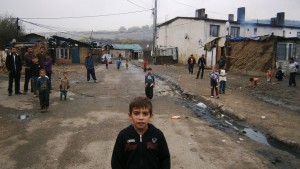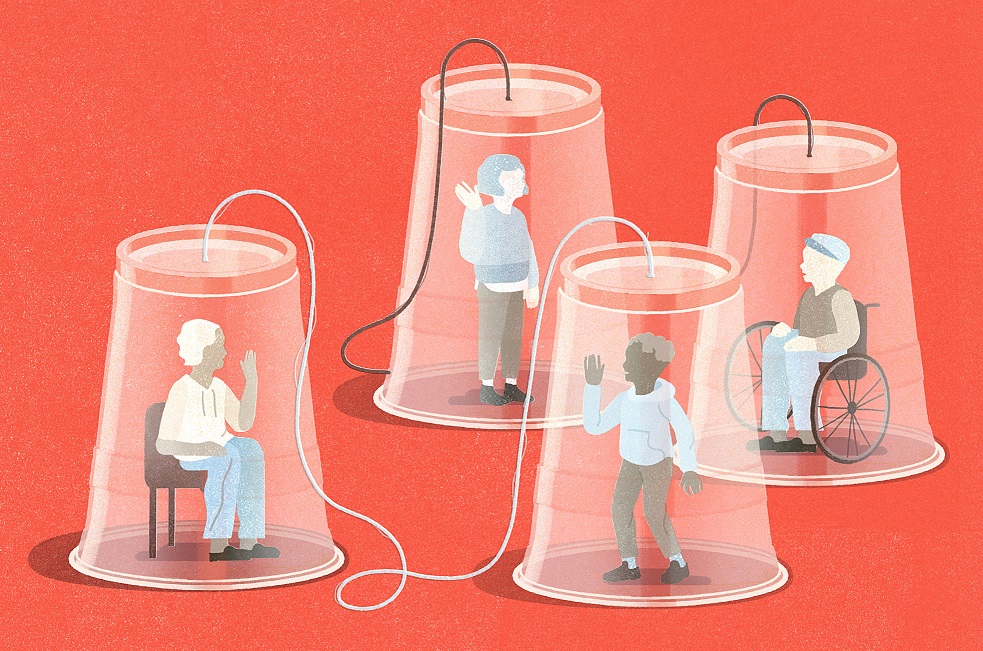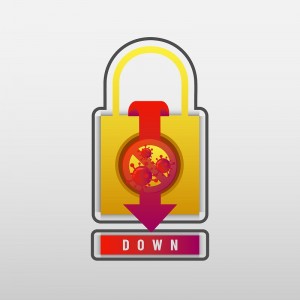COVID-19 and Human Rights
“The COVID-19 pandemic is a public health emergency — but it is far more. It is an economic crisis. A social crisis. And a human crisis that is fast becoming a human rights crisis.”
— António Guterres, UN Secretary-General
The Covid-19 crisis has provided some political leaders with a perfect pretext to advance narrow interests, brushing aside long-held principles of human rights, democracy and the rule of law in the name of emergency. Perhaps this is the reason why curtailing certain rights has formed a core facet of many countries’ response to the pandemic. They have issued stay-at-home-orders and imposed curfews which impact individual liberty. People are being quarantined which is by default a discriminatory step which impacts people based on specific but sometimes arbitrarily enforced criteria, e.g. where they had travelled from, who they have been in contact with, and so on. However, such unprecedented acts establish the norms that will be very hard to undo long after the coronavirus is eradicated.
The world is facing an unprecedented crisis. At its core is a global public health emergency on a scale not seen for a century, requiring a global response with far-reaching consequences for our economic, social and political lives. The priority is to save lives. In view of the exceptional situation and to preserve life, countries have no choice but to adopt extraordinary measures. Measures that have been adopted to slow transmission of the virus, e.g. extensive lockdowns, essential restriction to freedom of movement affect many human rights. We see that in some countries doctors and nurses don’t have enough personal protective equipment. Unemployment is skyrocketing and people can’t earn a basic standard of living. Social isolation leaves people with disabilities without care. These are all challenges that come back to human rights.
The United Nations High Commissioner for Human Rights Michelle Bachelet recently warned that countries flouting the rule of law in the name of fighting the novel coronavirus pandemic risk sparking a “human rights disaster”. She called on countries to refrain from violating fundamental rights “under the guise of exceptional or emergency measures.” Bachelet acknowledged that states have the right to restrict some rights to protect public health, but she insisted that any restrictions should be necessary, proportionate and non-discriminatory, and also limited in duration. The UN rights chief also warned that efforts to rein in dangerous misinformation around the pandemic was in some cases being used as an excuse to crack down on legitimate free speech. She concluded her statement by opining: “If the rule of law is not upheld, then the public health emergency risks becoming a human rights disaster, with negative effects that will long outlast the pandemic itself.”
Guaranteeing human rights for everyone poses a challenge for every country around the world to a differing degree. The public health crisis is fast becoming an economic and social crisis and a protection and human rights crisis rolled into one. In some, ongoing crises, especially armed conflict, put human rights and other international legal protections under extra pressure. The COVID-19 crisis has exacerbated the vulnerability of the least protected in society. It is highlighting deep economic and social inequalities and inadequate health and social protection systems that require urgent attention as part of the public health response. Women and men, children, youth and older persons, refugees and migrants, the poor, people with disabilities, persons in detention, minorities, LGBTI people, among others, are all being affected differently. We have an obligation to ensure everyone is protected and included in the response to this crisis. State authorities are having to deploy maximum resources to combat the spread of the disease and protect lives. Decisions are being made at speed and, even though well-intended, some can inadvertently have adverse consequences. Responses must be proportionate to the pandemic to preserve the trust that needs to exist between people and their government, especially during a crisis.
Human rights guide States on how to exercise their power so that it is used for the benefit of the people and not to do harm. In the current crisis, human rights can help States to recalibrate their response measures to maximize their effectiveness in combating the disease and minimise the negative consequences. The centrality of protection, which underpins the response in humanitarian settings, ensures that we collectively preserve our common humanity and dignity.
Human rights law recognizes that national emergencies may require limits to be placed on the exercise of certain human rights. The scale and severity of COVID-19 reaches a level where restrictions are justified on public health grounds. Nothing in this paper seeks to tie the hands of States in shaping an effective response to the pandemic. Rather it aims to signal to States possible pitfalls in the response to the crisis and to suggest ways in which attention to human rights can shape better responses.
The aim is threefold: to strengthen the effectiveness of the response to the immediate global health threat; mitigate the broader impact of the crisis on people’s lives; and avoid creating new or exacerbating existing problems. All three elements will position us to build back better for everyone.
Against a backdrop of rising ethno-nationalism, populism, authoritarianism and pushback against human rights in some countries, the crisis can provide a pretext to adopt repressive measures for purposes unrelated to the pandemic. The instability and fear that the pandemic engenders is exacerbating existing human rights concerns, such as discrimination against certain groups, hate speech, xenophobia, attacks and forced returns of refugees and asylum-seekers, mistreatment of migrants, and sexual and gender-based violence, as well as limited access to sexual and reproductive health and rights.
This is not a time to neglect human rights; it is a time when, more than ever, human rights are needed to navigate this crisis in a way that will allow us, as soon as possible, to focus again on achieving equitable sustainable development and sustaining peace.
Human Rights at the Frontline in the Fight against Covid-19
Three rights are at the frontline in the current pandemic:
- Right to life and duty to protect life
We are combating COVID-19 to protect the lives of all human beings. Invoking the right to life reminds us that all States have a duty to protect human life, including by addressing the general conditions in society that give rise to direct threats to life. States are making extraordinary efforts to do this, and it must remain the primary focus.
- The right to health and access to health care
The right to health is inherent to the right to life. COVID-19 is testing to the limit States’ ability to protect the right to health. Every human being is entitled to the enjoyment of the highest attainable standard of health conducive to living a life in dignity. Everyone, regardless of their social or economic status, should have access to the health care they need.
Historic underinvestment in health systems has weakened the ability to respond to this pandemic as well as provide other essential health services. COVID-19 is showing that universal health coverage (UHC) must become an imperative.
Those States with strong and resilient healthcare systems are better equipped to respond to crises. Health-care systems all around the world are being stretched, with some at risk of collapse. UHC promotes strong and resilient health systems, reaching those who are vulnerable and promoting pandemic preparedness and prevention. SDG 3 includes a target of achieving UHC.
Universal, affordable health-care systems assist with combating the pandemic by ensuring access for everyone, without discrimination, to basic measures that contain the spread of the virus. This includes testing, specialist care for the most vulnerable, intensive care for those in need and vaccination, when available, regardless of ability to pay. In response to the pandemic, some countries have extended health cover to everyone in their country; others have reached agreements with private sector health-care providers to make their facilities available to the pandemic response.
- The central challenge to freedom of movement
Controlling the virus, and protecting the right to life, means breaking the chain of infection: people must stop moving and interacting with each other. The most common public health measure taken by States against COVID-19 has been restricting freedom of movement: the lockdown or stay-at-home instruction. This measure is a practical and necessary method to stop virus transmission, prevent health-care services becoming overwhelmed, and thus save lives.
However, the impact of lockdowns on jobs, livelihoods, access to services, including health care, food, water, education and social services, safety at home, adequate standards of living and family life can be severe. As the world is discovering, freedom of movement is a crucial right that facilitates the enjoyment of many other rights.
While international law permits certain restrictions on freedom of movement, including for reasons of security and national emergency like health emergencies, restrictions on free movement should be strictly necessary for that purpose, proportionate and non-discriminatory. The availability of effective and generalised testing and tracing, and targeted quarantine measures, can mitigate the need for more indiscriminate restrictions.
Recommendations
In a report titled as “Covid-19 and Human Rights: We are all in this together,” the United Nations has given following recommendations to protect human rights in the time of coronavirus pandemic:
- Use maximum available resources at national and international levels to ensure availability, accessibility and quality of health care as a human right to all without discrimination, including for conditions other than COVID-19 infection; and ensure that the right to life is protected throughout.

- Ensure that stimulus packages and other responses to mitigate the economic impacts of the pandemic are people-centred and adequately support groups most affected by the loss of their livelihoods, such as informal and independent workers without access to unemployment benefits, and more generally people and groups without access to social safety nets.
- Ensure income security and targeted social assistance for the most marginalized or vulnerable. Ensure availability of food, water and sanitation, and adequate housing.
- Ensure that national and local response and recovery plans identify and put in place targeted measures to address the disproportionate impact of the virus on certain groups and individuals, including migrants, displaced persons and refugees, people living in poverty, those without access to water and sanitation or adequate housing, persons with disabilities, women, older persons, LGBTI people, children, and people in detention or institutions.
- Encourage political leaders and other actors, including religious leaders, to speak out and take action against discrimination, hate speech, ageism, xenophobia, racism or violence arising from this pandemic, and promote inclusion and unity.
- Guarantee meaningful participation of all sectors of society and diverse civil society actors in decision-making processes on COVID-19 response.
- Ensure reliable, accurate information reaches all, by making it available in readily understandable formats and languages, including indigenous languages and those of minorities, adapting information for people with specific needs, including the visually and hearing impaired, and reaching those with limited or no ability to read, or who lack access to the Internet and usual media sources.

- Guarantee freedom of expression, including freedom of the press, so that information can be disseminated without suppression. Governments, as well as media and technology companies, need to counter misinformation with accurate, clear and evidence-based information, and avoid overbroad efforts that could result in censorship of protected speech.
- Ensure that any emergency measures, including states of emergency, are legal, proportionate, necessary and non-discriminatory, have a specific focus and duration, and take the least intrusive approach possible to protect public health.
- Ensure that emergency powers are not used as a basis to quash dissent, silence human rights defenders or journalists, or any other steps taken that are not strictly necessary to address the health situation.
- Ensure that safeguards are in place where new technologies are used for surveillance in response to COVID-19, including purpose limitations and adequate privacy and data protections.
- Mitigate the impact of the crisis on women and girls, including on their access to sexual and reproductive health/rights, and protection from domestic and other forms of gender-based violence and ensure their full and equal representation in all decision-making on short-term mitigation and long-term recovery.
- Strengthen international cooperation and take steps towards the provision of universal health care, collaborate in developing a vaccine and treatment for the pandemic, expedite trade and transfer of essential medical supplies and equipment, including personal protective equipment for health-care and other front-line workers, and address intellectual property issues, to ensure that COVID-19 treatments are available and affordable to all.
- Take measures to alleviate the situation of vulnerable groups, including migrants and refugees, outside their country of origin, in particular by granting temporary residence to migrants, imposing a moratorium on deportations and other forced returns, and ensuring that individuals are able to return home voluntarily in safety and dignity.
- Take the lessons learned from this pandemic to refocus action on ending poverty and inequalities and addressing the underlying human rights concerns that have left us vulnerable to the pandemic and greatly exacerbated its effects with a view to building a more inclusive and sustainable world including for future generations.
 Jahangir's World Times First Comprehensive Magazine for students/teachers of competitive exams and general readers as well.
Jahangir's World Times First Comprehensive Magazine for students/teachers of competitive exams and general readers as well.




